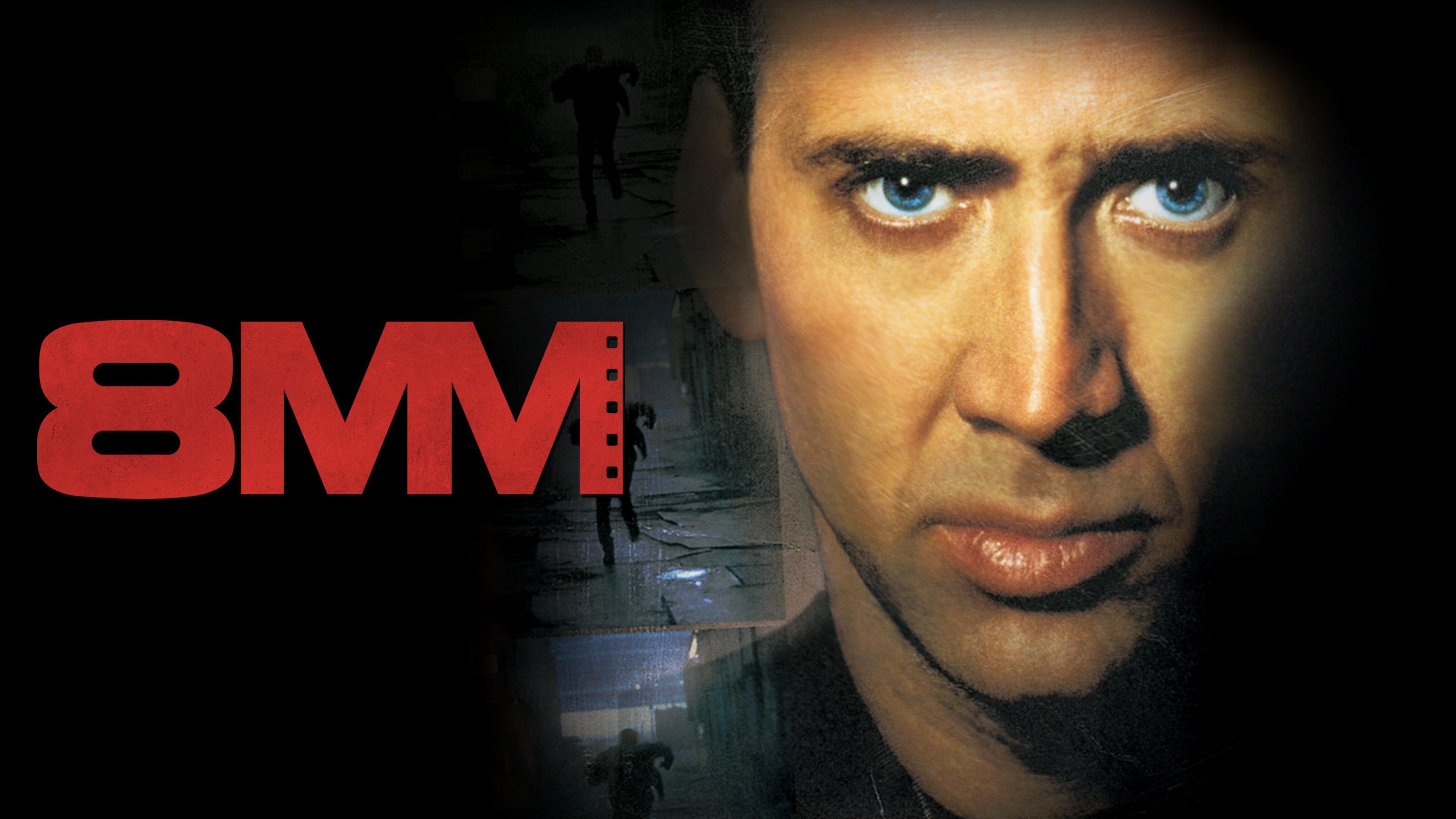There are movies that claim to “go there,” and then there’s 8mm—a movie that finds the locked door, kicks it open, and drags you into a darkness so absolute you forget the way out. Joel Schumacher, who usually deals in gloss and glitter, here trades the neon for bruise-purples and cigarette-ash shadows. The result? A drama that should come with a warning label: THERE’S NO SUCH THING AS ‘JUST LOOKING’ ANYMORE.
Let’s get straight to the nerve: from the opening reel I felt a tremor, that rare, unpleasant thrill of knowing I wasn’t about to enjoy myself—I was about to learn something ugly. If you’re expecting a pulpy detective yarn, think again. 8mm is a bottle of nitroglycerin wrapped in brown paper; you can’t touch it without repercussions. Schumacher’s dive into the sewage-pipe underbelly of the adult film industry isn’t lurid fun, it’s an unlit corridor where each step is stickier than the last. As the camera creeps forward, so does your skin.
Nicolas Cage is Tom Wells—the kind of private eye who thinks the world is rotten but still believes in a bottle of hand sanitizer. Cage is a secular Job here: tenacious, fraying, his anguish almost audible. It’s one of those performances—glorious in its overstretched agony—where the actor’s nerves are practically exposed. You watch Cage’s face register every blow: the denial, the squalid hope, the growing realization that when you peer into the abyss, sometimes the smut looks back. For once, his despair isn’t a solo act; it becomes a score, and the movie is pitched to match.
This is where Joaquin Phoenix’s Max California struts in, as if someone dropped a rock critic in the middle of a Dante adaptation. If Cage’s Wells is hollowed out by virtue, Max is still fighting to keep his spark—cocky, sarcastic, wary, but not yet used up by everything he’s seen. Whenever the story threatens to become simple, Phoenix slides in with a joke, a plea, a reality check. It’s not just that his revelations about the industry are informative—they’re a flashing sign: HUMANITY DETOUR AHEAD. The chemistry between Wells and Max isn’t so much buddy-cop as two men seeing how close they can get to the fire without catching each other’s hair.
The script is bravely, almost masochistically, fixated on complicity. 8mm doesn’t let you lean back with a carton of moral popcorn and sigh about “those sick people over there.” It plants you right in the audience’s trembling lap and asks what you’re willing to watch, what you’re willing to let pass. The adult film industry here isn’t erotic; it’s a meat-grinder run on money, misery, and absence of daylight. Schumacher isn’t making a case against pornography, per se—he’s picking through the charred bones of consumer apathy. What’s horrifying isn’t just the villains, but the exquisitely polite agents, fixers, and customers in bespoke suits, cashing in on other people’s oblivion.
You’d expect the visuals to be ugly, and you’d be right—they’re so saturated in grime you want to scrape the screen. The cinematography turns every interior into a mausoleum, every encounter into an autopsy. Shadow and silence breed suspicion. The score? It doesn’t seduce, it stalks. If you find yourself comforted for even a moment, check your pulse.
The most wounding thing about 8mm—what really left me rattled—was its surgical probe into the act of watching. The movie does to its audience what its villains do to their victims: escalate our thresholds, smudge the line between horrified witness and hungry voyeur. Halfway through, your relationship to cinema itself starts to ache. It left me, at the end, with a psychic rash—a persistent crawl under the skin—reminding me that entertainment isn’t always innocent, and sometimes watching is the dirtiest thing we can do.
So, to business: is 8mm entertainment? Enlightenment? Or simply punishment? I’m not sure it matters. Cage and Phoenix give performances so raw they almost bleed, Schumacher directs with the zeal of a preacher who’s stopped believing in salvation, and I walk away no longer quite trusting my own gaze. The movie left me sitting in the afterglow of discomfort: questioning, even dreading, what gets packaged as entertainment in the first place. This isn’t a whodunit—it’s a whydowecare—and it isn’t for the faint-hearted, unless you think your sense of right and wrong could use a little nerve damage.
See it if you’re willing to risk the kind of film that won’t wash off. 8mm insists you share in the grime. And that, for all its pain, is real honesty—the kind that, once seen, can never quite be unseen.


